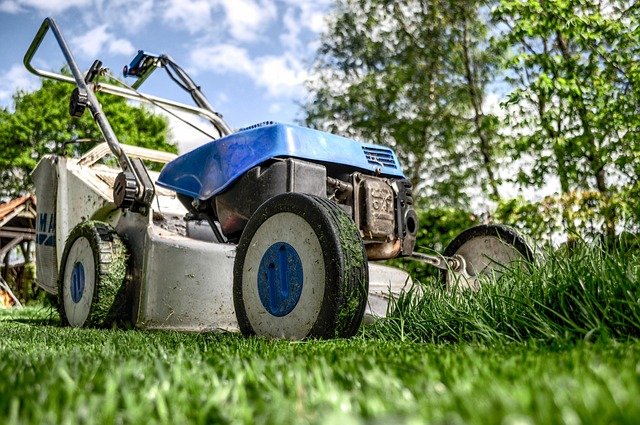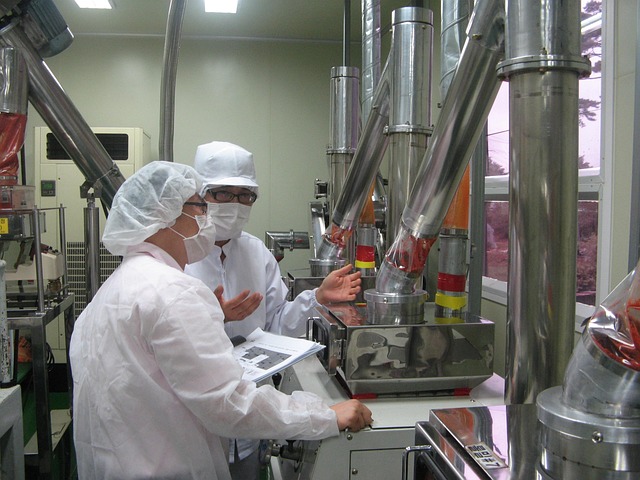Landscaping Companies – Equipment and Professional Standards
Successful landscaping careers depend on advanced equipment and proper training. Franchise systems provide workers with the tools and knowledge to succeed, while software platforms manage tasks, schedules, and reporting, creating structured career development in the landscaping industry.

How does equipment define quality in landscaping careers?
Equipment plays a pivotal role in defining the quality of work in landscaping careers. Modern landscaping companies invest heavily in state-of-the-art machinery and tools to ensure efficiency, precision, and superior results. High-quality mowers, trimmers, and edgers are essential for maintaining lawns and creating crisp borders. For more complex projects, companies utilize excavators, skid steers, and specialized planting equipment to handle tasks such as grading, soil preparation, and large-scale plantings.
The use of advanced equipment not only improves the quality of work but also enhances productivity. For instance, ride-on mowers with larger cutting decks allow landscapers to maintain expansive areas in less time, while precision irrigation systems ensure optimal water distribution for plant health. As landscaping professionals become adept at operating these sophisticated tools, they elevate their skills and the overall quality of their work, leading to better career prospects and job satisfaction.
What role do franchise systems play in training and career growth?
Franchise systems have become increasingly popular in the landscaping industry, offering numerous benefits for both business owners and employees. These systems provide a structured approach to training and career development, ensuring that landscaping professionals have access to the latest industry knowledge and best practices.
Franchises often offer comprehensive training programs that cover various aspects of landscaping, from basic horticultural knowledge to advanced design techniques and business management skills. This systematic approach to education helps employees build a solid foundation for their careers and provides clear pathways for advancement within the organization.
Moreover, franchise systems typically have established standards and protocols for service delivery, equipment maintenance, and customer relations. This consistency across the franchise network ensures that employees are well-prepared to meet industry standards and client expectations, regardless of their location. The support provided by franchise systems also extends to ongoing training and professional development opportunities, allowing landscaping professionals to continually update their skills and stay current with industry trends.
How do software tools improve task management and planning in landscaping?
The integration of software tools has revolutionized task management and planning in the landscaping industry. These digital solutions streamline operations, enhance communication, and improve overall efficiency. Landscape management software allows companies to schedule and track projects, manage crews, and monitor equipment usage with greater accuracy and ease.
One of the key benefits of these software tools is their ability to optimize route planning for maintenance crews. By analyzing factors such as job locations, traffic patterns, and crew availability, these systems can create efficient schedules that minimize travel time and maximize productivity. This not only reduces fuel costs but also allows companies to serve more clients in a given day.
Additionally, project management software enables landscaping companies to create detailed project timelines, allocate resources effectively, and track progress in real-time. This level of oversight helps prevent delays, manage budgets more effectively, and ensure that all aspects of a project are coordinated seamlessly. Some advanced systems even incorporate weather data to adjust schedules and resource allocation based on upcoming conditions, further improving planning and client satisfaction.
What professional standards are essential in the landscaping industry?
Professional standards in the landscaping industry encompass a wide range of practices and principles that ensure quality, safety, and ethical conduct. One of the most important standards is adherence to local and national regulations regarding pesticide use, water conservation, and environmental protection. Landscaping companies must stay informed about these regulations and ensure that their practices align with current guidelines.
Safety standards are another critical aspect of professionalism in landscaping. Companies must provide proper training and personal protective equipment to their employees, as well as maintain their equipment to prevent accidents and injuries. This commitment to safety not only protects workers but also demonstrates a company’s dedication to responsible business practices.
Customer service is also a key professional standard in the landscaping industry. Companies that prioritize clear communication, punctuality, and responsiveness to client needs tend to build stronger relationships and earn positive reputations. Many landscaping businesses implement customer relationship management (CRM) systems to track client preferences, manage feedback, and ensure consistent, high-quality service delivery.
How do landscaping companies balance innovation with traditional practices?
Balancing innovation with traditional practices is a delicate but essential task for modern landscaping companies. While new technologies and techniques can greatly improve efficiency and results, there’s still significant value in time-tested horticultural knowledge and craftsmanship. Successful companies find ways to integrate cutting-edge tools and methods without losing sight of the fundamental principles of landscape design and plant care.
For example, while computer-aided design (CAD) software has revolutionized landscape planning, many companies still emphasize the importance of hand-drawn sketches in the initial creative process. Similarly, while automated irrigation systems offer precise water management, skilled landscapers understand the nuances of plant needs that may require manual adjustments.
This balance extends to sustainability practices as well. Innovative companies are incorporating eco-friendly technologies like solar-powered equipment and smart water management systems. However, they’re also reviving traditional practices such as composting, native plant use, and organic pest control methods that have proven beneficial over time.
What career opportunities exist within professional landscaping companies?
Professional landscaping companies offer a diverse range of career opportunities for individuals with various skills and interests. Entry-level positions often include roles such as landscape laborers or maintenance technicians, which provide hands-on experience and a foundation for growth within the industry. As employees gain experience and expertise, they can advance to specialized roles such as:
-
Landscape Designer: Responsible for creating aesthetically pleasing and functional outdoor spaces.
-
Horticulturist: Specializes in plant selection, care, and cultivation.
-
Irrigation Technician: Focuses on the installation and maintenance of water systems.
-
Arborist: Specializes in the care and maintenance of trees.
-
Project Manager: Oversees large-scale landscaping projects from start to finish.
-
Sales and Customer Service Representative: Interacts with clients and manages accounts.
-
Operations Manager: Coordinates teams and resources for multiple projects.
Many landscaping companies also offer opportunities for business ownership through franchising or partnership programs. This allows experienced professionals to leverage their skills and industry knowledge to run their own successful landscaping businesses.
In conclusion, the landscaping industry offers a rich tapestry of career opportunities supported by advanced equipment, professional standards, and innovative practices. As the industry continues to evolve, those who embrace both traditional knowledge and modern technologies will find themselves well-positioned for success in this dynamic field.




